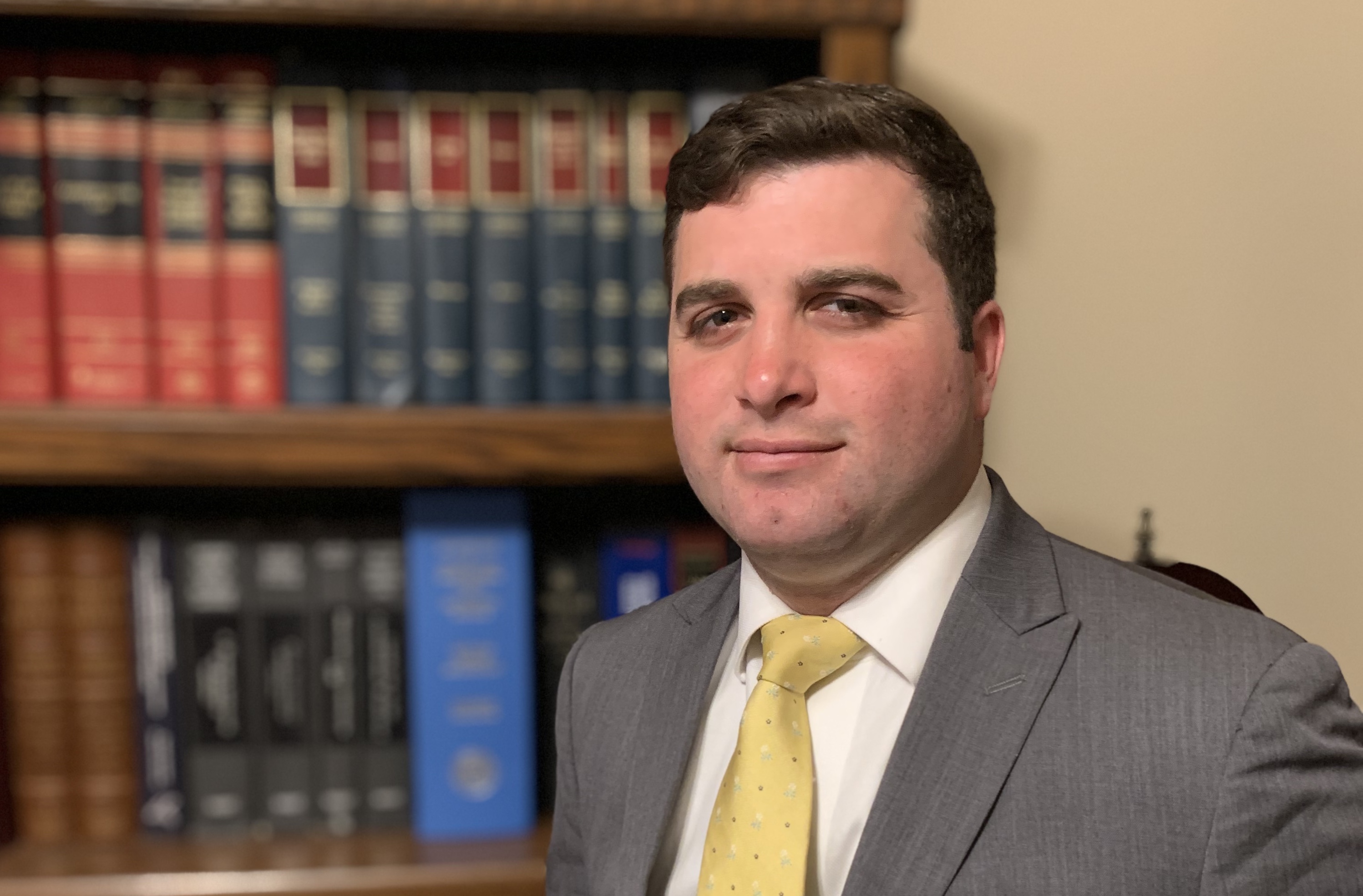The decision to entrust your elderly parent or family member to a long term care facility is a very difficult decision that comes with many mixed emotions. When you can no longer provide the level and amount of care your loved one requires, and they can no longer live safely on their own, you want them to be taken care of in a place where they will receive the care they require and maintain the dignity that they deserve.
While intentional abuse of the elderly can happen, injuries and deterioration of health from nursing home neglect is far more common and harder to recognize. You can still care for your loved one even after they have become a resident of a long term care facility by advocating for their care and staying proactive in recognizing nursing home neglect.
Some of the most common and preventable injuries from neglect are falls, bed sores, dehydration, and deep vein thrombosis. If you have concerns that your loved one is suffering from nursing home neglect, please give us a call for a free consultation (312.443.1488).
- Falls
Injuries from falls can be lethal for an elderly person. The elderly and persons with cognitive deficits are more prone to falls. For this very reason, falls at a nursing home should never happen. The nursing home knows of the high risk and should plan accordingly.
Upon arrival, every resident should undergo an in-depth fall risk assessment taking into consideration the resident’s physical and cognitive limitations. Based on this evaluation, the nursing staff and house physician will enter orders for regular monitoring, safety devices, and differing levels of physical assistance for different activities such as going to the bathroom and getting out of bed. Even if the resident does not have eyes on them 24/7, there are a number of alerts and devices that should prevent residents from falling and hurting themselves.
- Safety Devices that Prevent Falls
The most basic device is a “call light button.” You may see this by the side of their bed when you visit. Whenever a resident is injured in a fall, at times, the nursing staff will try to shift the blame and say that they provided a call light and instructed the resident to ring it if they need help. This is not sufficient. Anyone who has woken up in the middle of the night in a new place has felt that sense of momentary disorientation. Now imagine how that would feel if you had early or late stage dementia. Being told upon admission to ring for help is not enough.
There are two common and non-intrusive alert systems. First, the nursing home should have a bed sensor. This is just a sensor under the bed mattress that sends an alarm to the nurse’s station when weight is removed from the bed. This alerts the staff to a resident trying to get out of bed unassisted, or possibly rolling out of bed. Second, there is a monitor that can be placed on the resident’s clothing. Think of it as a treadmill clip that stops the machine when you pull it out. If the patient gets out of bed unassisted, the clip is pulled and the nursing station is alerted. Both of these alarms are very basic but very important for keeping your loved one safe.
Other important devices that should be used are guardrails. Your loved one should never roll out of bed and get hurt. Nursing homes cannot confine or restrain a person involuntarily. Guardrails can slow someone with cognitive deficits from getting out of bed unassisted. This obstacle may cause the resident to realize they should call for assistance and/or alert the staff to get to the resident.
- What to Look For
When you visit or talk to your loved one, ask them how they are feeling and whether they are feeling any aches and pains. Many people of our parents or grandparents’ generation are not the type to volunteer this information to you or their nurses unless you ask directly. When you visit, be observant for any bruises, cuts, bumps, or other signs of injury. Follow up with your loved one to figure out if these pains or bruises were caused by any falls.
Most importantly, follow up with the nursing staff to see if they are aware of the source of the injuries. Unwitnessed falls are more common than you would think and you should alert the staff to the situation so they can address the problems. It may be surprising to learn that the staff was aware of the fall(s) but never told you. Sometimes nursing homes do not consider these injuries as “serious enough” to notify the family. It is not until a very serious injury occurs and we look through the records that we learn that minor incidents were occurring that should have alerted the nursing home to provide greater attention. Make sure to be proactive.
- Bed Sores
Bed sores or decubitus ulcers are wounds on the body that are caused by friction on skin or pressure on areas that are not moved. These injuries may seem small, but they can very often become fatal because they are breeding grounds for infections. Sometimes they can look like pink areas or bruises and they can be painful, but they do not have breaks or tears in the skin. The sores can worsen if not properly treated and develop into open wounds. The most common locations are on the buttocks, tail bone, heels, and elbows, but they can develop in any area that is resting on the bed, unmoved for extended periods of time.
Bed sores are very preventable injuries. Nursing homes should perform in-depth skin breakdown risk assessments from admission and regularly thereafter. After these assessments, the nursing staff and physician should enter orders for regular skin checks and repositioning. A patient can get special mattresses and sheets that relieve friction and pressure. The staff should be making sure the resident is moving and repositioning themselves and if they cannot, the nursing staff should assist.
Bed sores can also develop from wet skin. Bed sores are very common for residents who are incontinent and have trouble controlling their bladder or getting out of bed in time to use the bathroom. Nursing homes and physicians should regularly assess for incontinence and provide orders for monitoring and treatment to prevent the skin from being exposed to moisture. A simple preventative treatment is barrier cream, which prevents moisture buildup and slows skin breakdown.
- What to Look For
Bed sores are usually located in areas you cannot see. If your loved one mentions soreness in one of the areas listed above, let the nursing staff know and follow up to insure the area is inspected. If your loved one is bed bound, observe if they are able to reposition themselves, ask them if they are repositioning themselves every now and then, and ask if the staff is periodically helping them reposition.
When these sores develop and become infected, they can have a bad smell. Be alert for foul odors when you visit.
Pay attention to whether your loved one is starting to have difficulty controlling their bladder. This can be embarrassing for them, but it is very important that you and the nursing staff know and address the risks.
- Dehydration
Dehydration is a very serious and life threatening condition for the elderly. It is more than just being thirsty. When people do not get the appropriate amount of fluids they need, it will worsen the function of the kidneys, worsen blood pressure, and lead to multi-system organ failure. Dehydration can often be the first domino that starts a chain reaction of worsening your loved one’s preexisting conditions. Dehydration is very preventable.
Nursing homes are aware of this risk and should be regularly monitoring the resident’s liquid intake, liquid output, and urine color. Most residents are able to eat and drink normally. Some people have to get fluids through feeding tubes or IVs, but most get all of their liquids regularly by mouth. For patients with cognitive deficits or forgetfulness, it may be hard for them to keep track of their meals and drinking. Unfortunately, nursing home staff may not understand the importance and severity of this problem until it is too late. When a resident’s overall condition crashes seemingly “out of nowhere,” many times the process began or was worsened by dehydration, and could have been reversed earlier with sufficient monitoring.
- What to Look For
It can be harder to notice dehydration when your loved one is able to drink on their own. Ask how their meals are and what they have to drink to see if they are drinking fluids. Ask if they are having trouble going to the bathroom to see if they are going the bathroom regularly.
Ask if your loved one or the staff if they have had any blood tests recently, what the test was for, and what the results showed. Blood labs can monitor the development of dehydration. Elevated BUN and elevated creatinine especially are signs that your loved one is suffering from dehydration. Physicians and nurses may consider these labs “routine,” and not important enough to alert the family. These tests, however, are very important for you to stay informed about what problems your family member may be suffering from in order to make sure they are receiving the care they need.
-
Deep Vein Thrombosis
Deep vein thrombosis, commonly referred to as DVT, or blood clots are a silent killer. They are very common in people who are immobile and have poor blood circulation. Not surprisingly, the elderly and nursing home residents are at very high risk for DVT. These blood clots develop in the legs, break off, and travel into the lungs, causing a life threatening injury known as pulmonary embolism, as well as sudden heart attacks.
When a loved one passes away in a nursing facility, the family is left with more questions than answers. The cause of death on the death certificate is typical very vague or contains complicated medical jargon. You may be told “it was just their time” and the death certificate states CHF (“congestive heart failure”) or cardiopulmonary arrest. These are general medical terms that just mean that the resident’s heart stopped, but heart failure does not just happen on its own. Very often it is caused by preventable DVT or pulmonary embolism.
Nursing homes know that all their patients are at risk for this condition. DVT can be prevented by getting the resident out of bed and making sure that they move around frequently. If the resident is unable to move, simple devices like pressure stockings can be helpful.
- What to Look For
Observe whether your loved one is able to get up and move around freely. Ask and look for leg swelling, pain in the legs, redness, discoloration of the legs, or unusually warm legs. Pay attention to whether they are having shortness of breath, rapid breathing, or abnormal breathing. Ask if they have had any dizziness or lightheadedness. Advanced signs can be fainting, falls due to fainting, dizziness, and coughing up blood.
Call Adler & Adler if You Have Questions or Concerns About Nursing Home Neglect
We know that entrusting your parent or loved one to a nursing home is not easy, but if you know what problems to look for and how to prevent neglect, you can continue to provide care even if you cannot be present every hour of the day.


